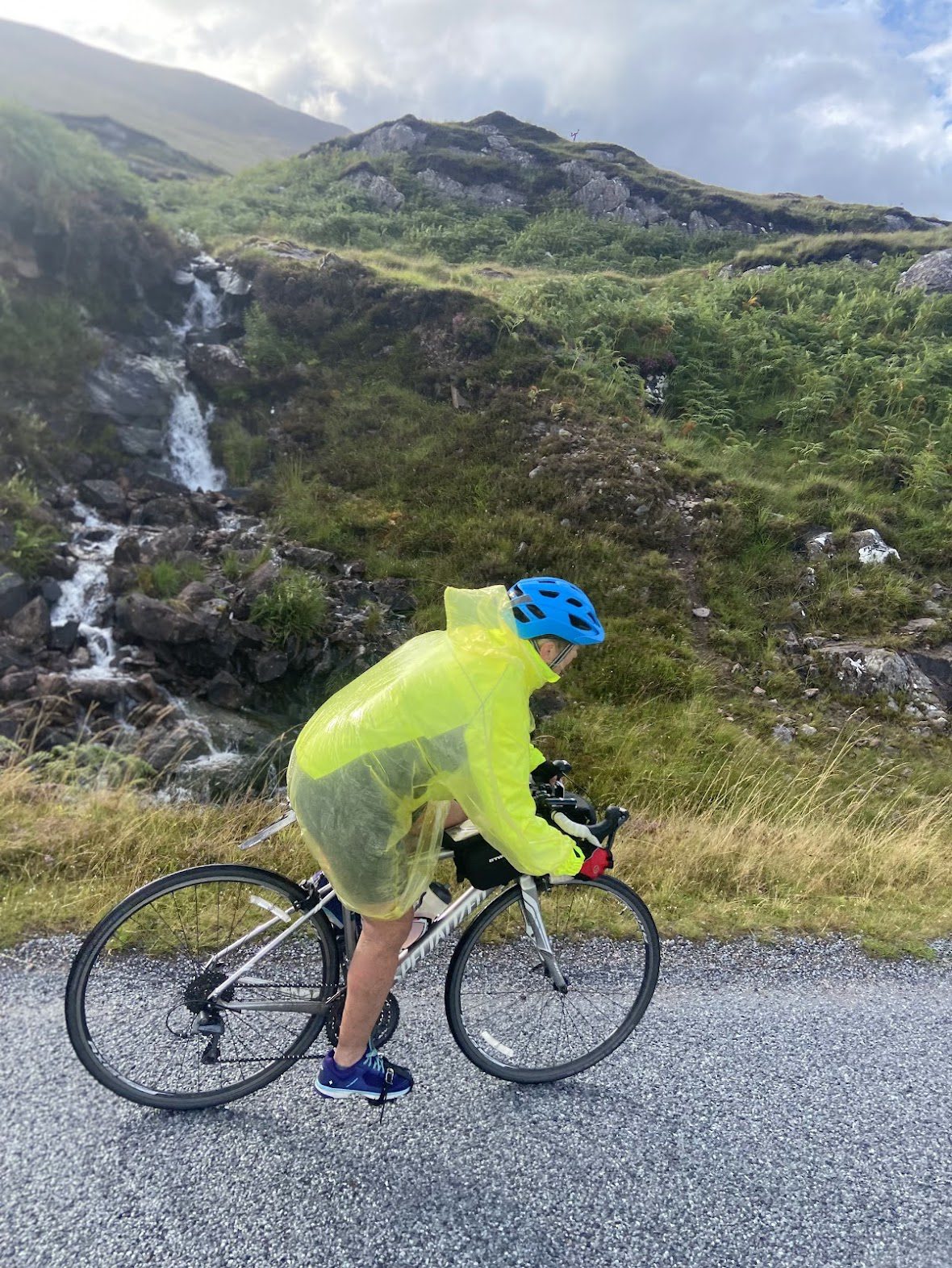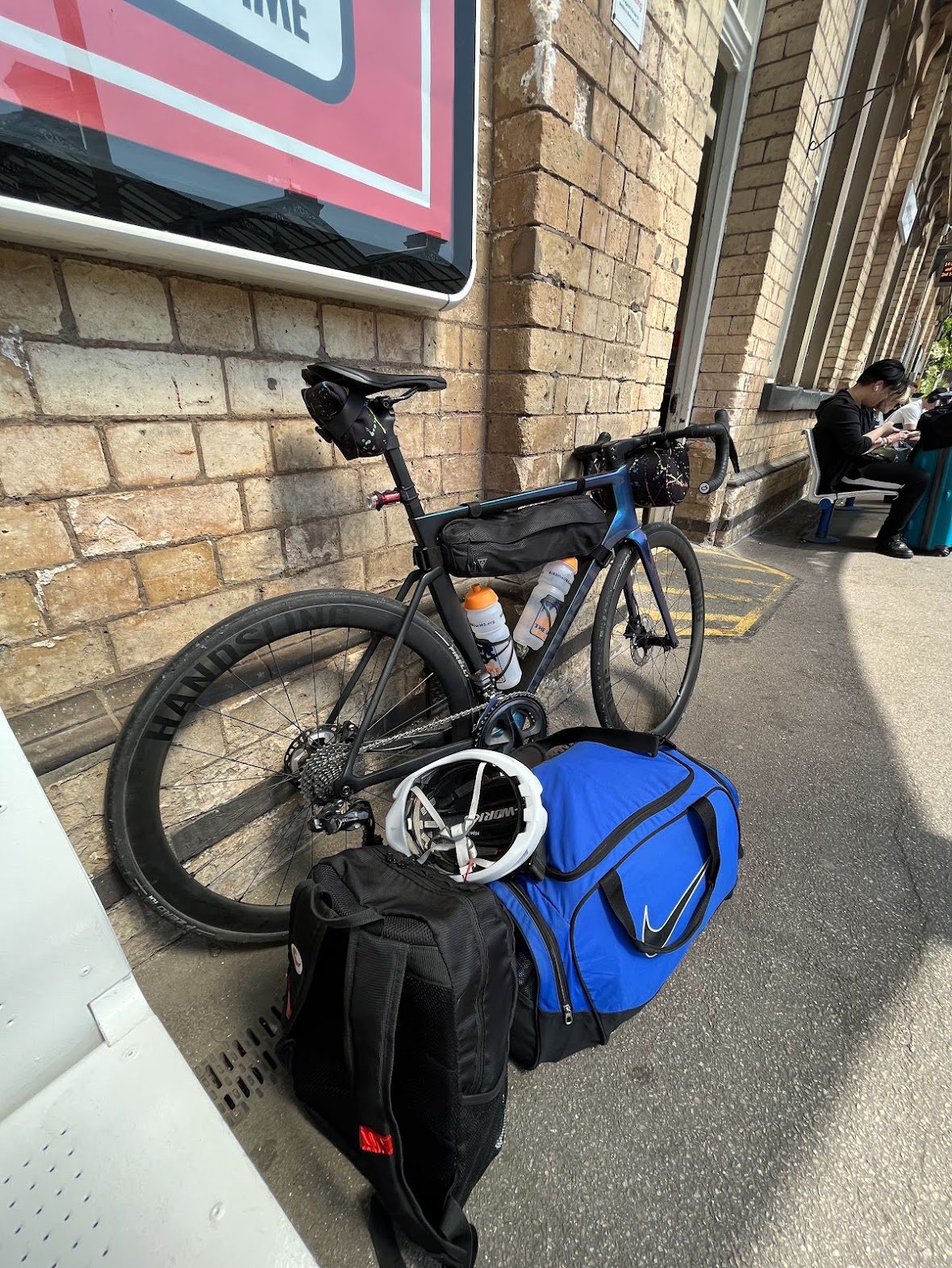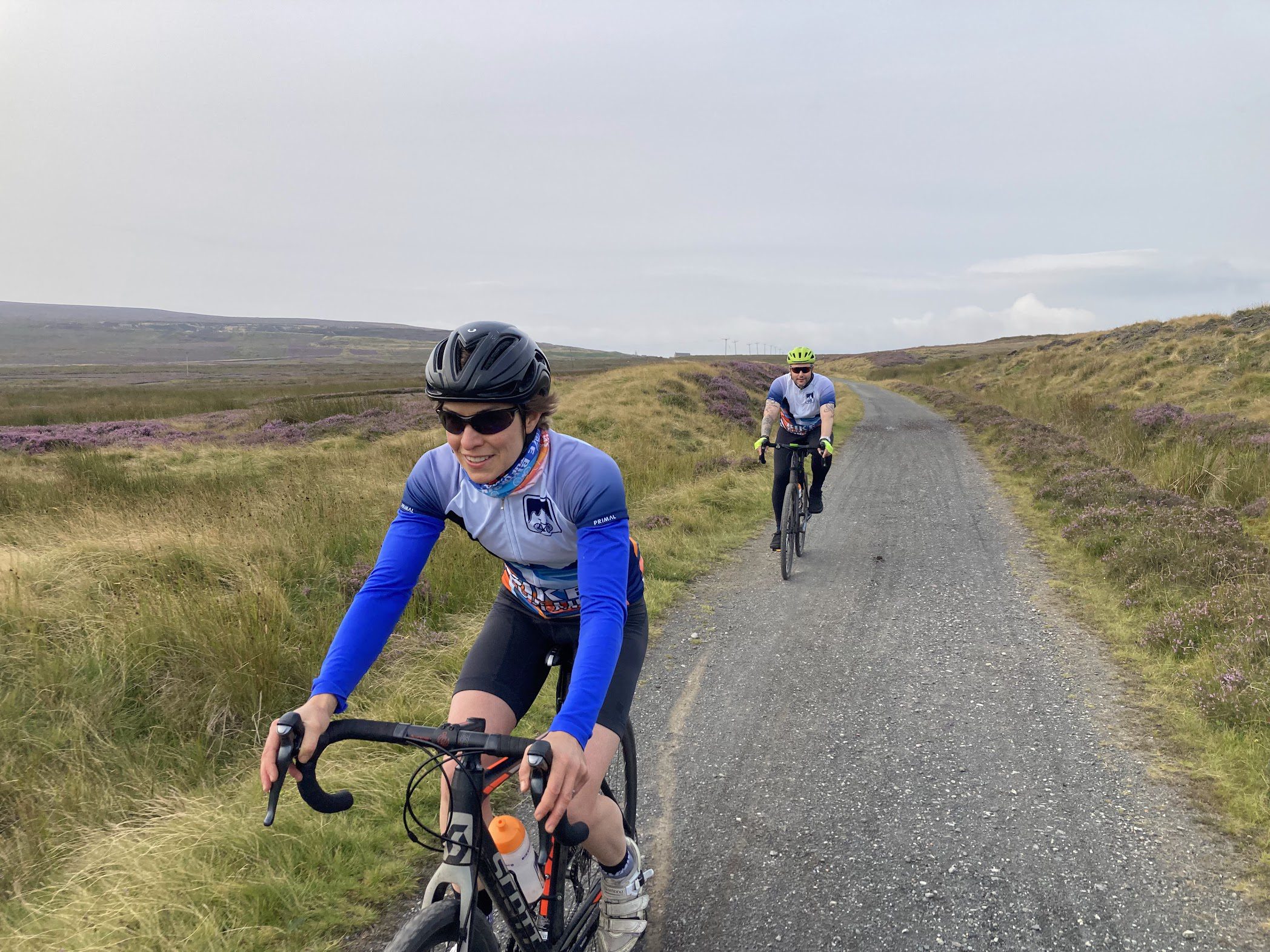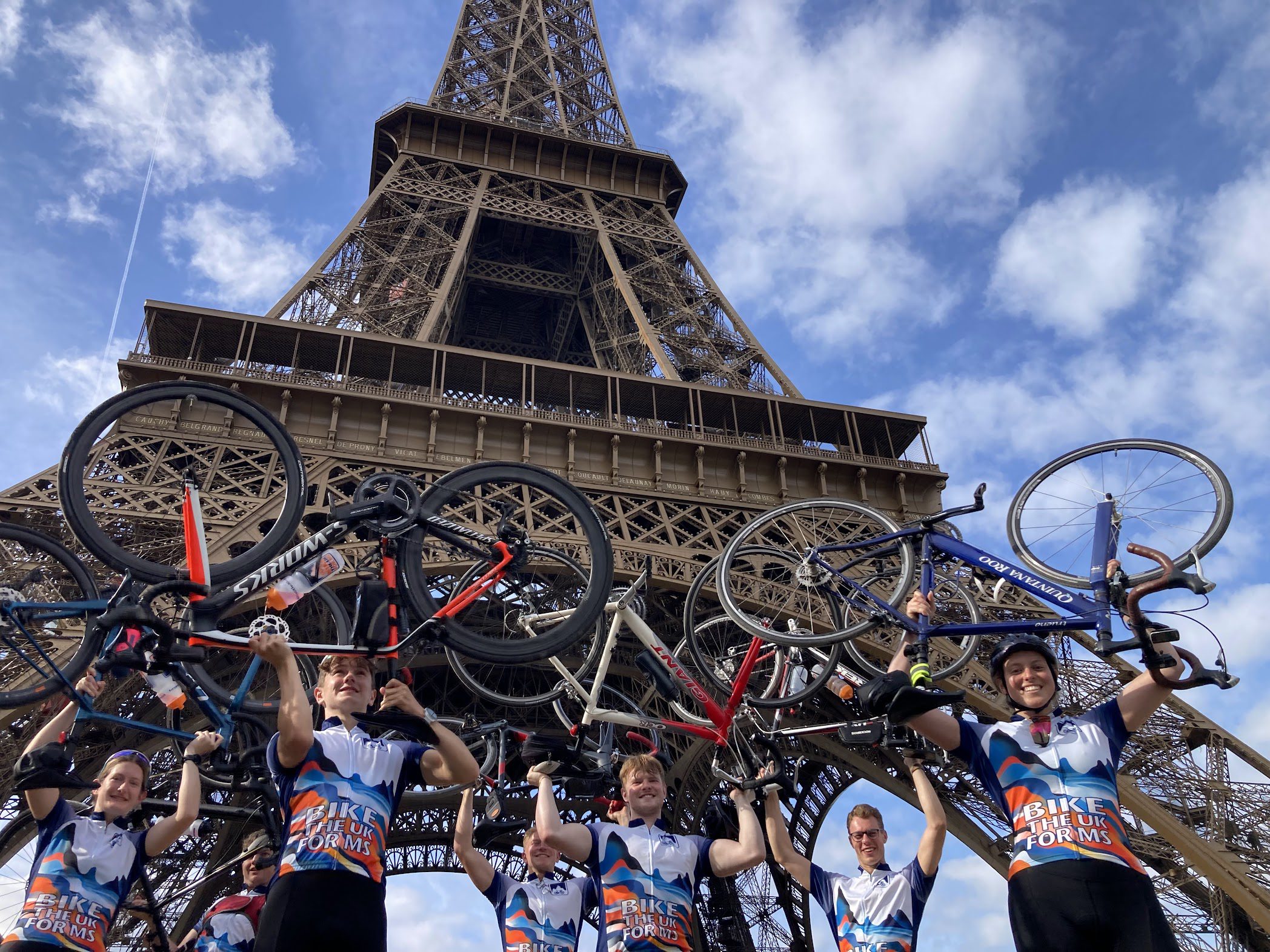This is Part 3 of our interview with Rosie Pickering – a member of the Bike the UK for MS alumni family who has ridden on all four of the Bike the UK for MS routes (Land’s End to John O’ Groats, North Coast 500, Sea to Sea and Lon Las Cymru) in the last few years. All this, despite having relapsing remitting multiple sclerosis herself and having (by her own admission!) come into the first of her rides with minimal cycling experience. UK Programme Manager Felix Young sat down to talk to Rosie and her husband Rich (also a two-times alumni of Bike the UK for MS) about her story with Bike the UK for MS. In this part of the interview we discuss Multiple Sclerosis and the affect on Rosie and Rich’s cycling and wider lives. You can listen to the interview on our podcast or watch it on YouTube. To read Parts 1 & 2 you can follow the links here:
Part 1 – Adventures on the bike
Part 2 – Riding with Bike the UK for MS
Interview conducted in May 2023
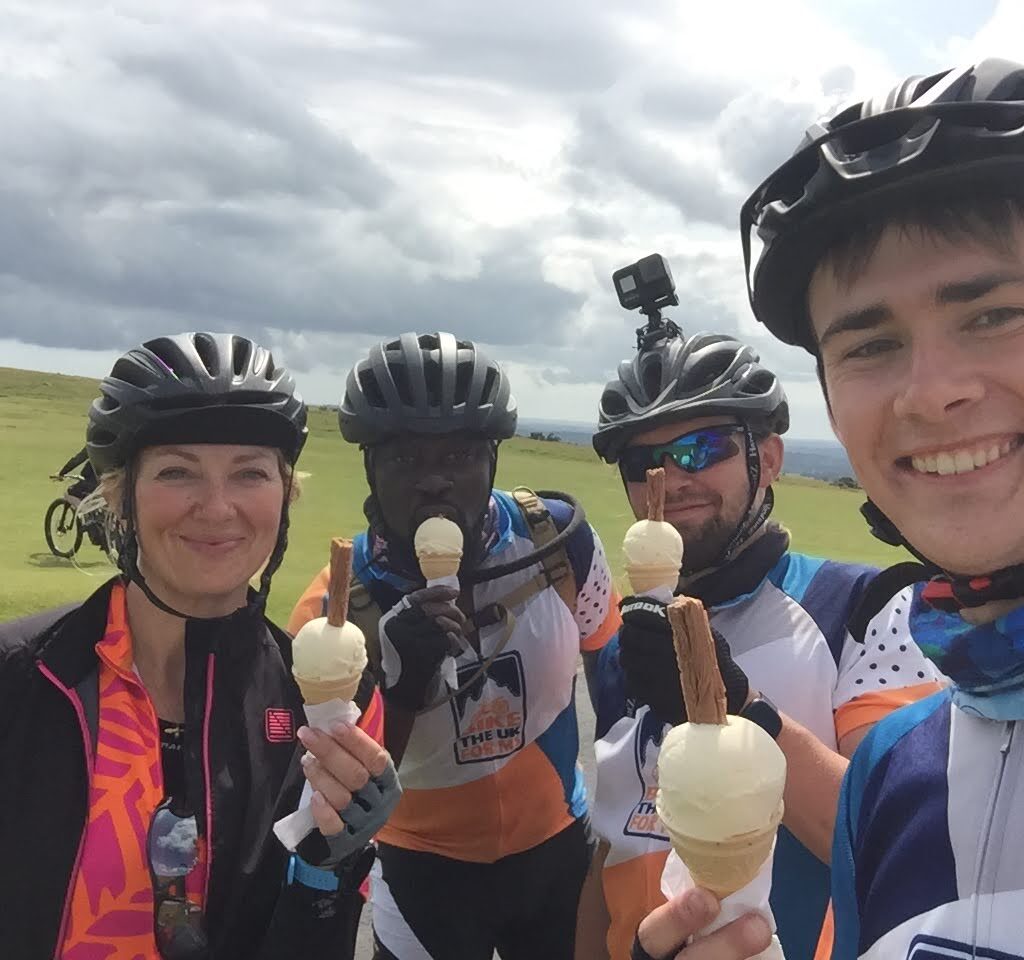
It’s fatigue.
FY: And so, to shift gear a little bit Rosie, we’ve spoken a lot about some of the things you’ve undertaken on the bike; some of the challenges and some of the successes. I was someone that came into Bike UK for MS without a direct link to the condition myself, but obviously it was your MS that brought you to Bike UK for MS. Can you give us an insight into how multiple sclerosis affects you and your riding. Of course, it’s so different for different people, but for you as an individual, what impact does it have?
Rosie: Well, I’ve been diagnosed now for around 15 years, I think it is. And out of all the sports I’ve found since I’ve had my condition, cycling’s the one that benefits me the most. I suffer with mass fatigue on the bike, but I train like Billy-o, like I haven’t got it. I get really quite acute pins and needles in my hands and my feet. After LEL last year, I didn’t have a sensation in my feet for about 14 weeks. That was a combination of doing, what was it? 650, 700 miles, I think, in a short period of time, along with having MS and having a heat wave which just accelerated all of my symptoms. I can get weird sensory problems. My balance goes, sometimes my speech goes. That’s not always a bad thing because I ramble on! But yeah, it’s fatigue, it’s fatigue. And weird sensory problems, unfortunately, on the bike. But it’s manageable for me. I feel very fortunate that I’m able to do what I can do. And yeah, just keep ploughing on, really.
Rich: You do Ocrevus infusions every six months. And she gets quite regular MRIs as well. But the last MRI showed no changes, despite the fact that Rosie’s done the LEL challenge and all the other stuff. The MRI was non… What was it called?
Rosie: So it didn’t show any more lesions on my brain scan, which was really good, which I was absolutely amazed at, to be quite honest, because I really thought I’d damaged myself after doing LEL last year.
Rich: Physiologically, there was no difference.
Rosie: Physiologically, yeah, it wasn’t any more.
Rich: Yeah, which is really, really positive.
Rosie: Yeah, so I mean, I’ve had a neuro appointment recently and he said, “just keep doing what you’re doing”. It’s really beneficial. So it’s all good, it’s all good.
FY: That’s all the encouragement you need, right? Having listened to the stories you have told, like it sounds like you weren’t gonna let them stop you anyway, right?
Rosie: Well, yeah.
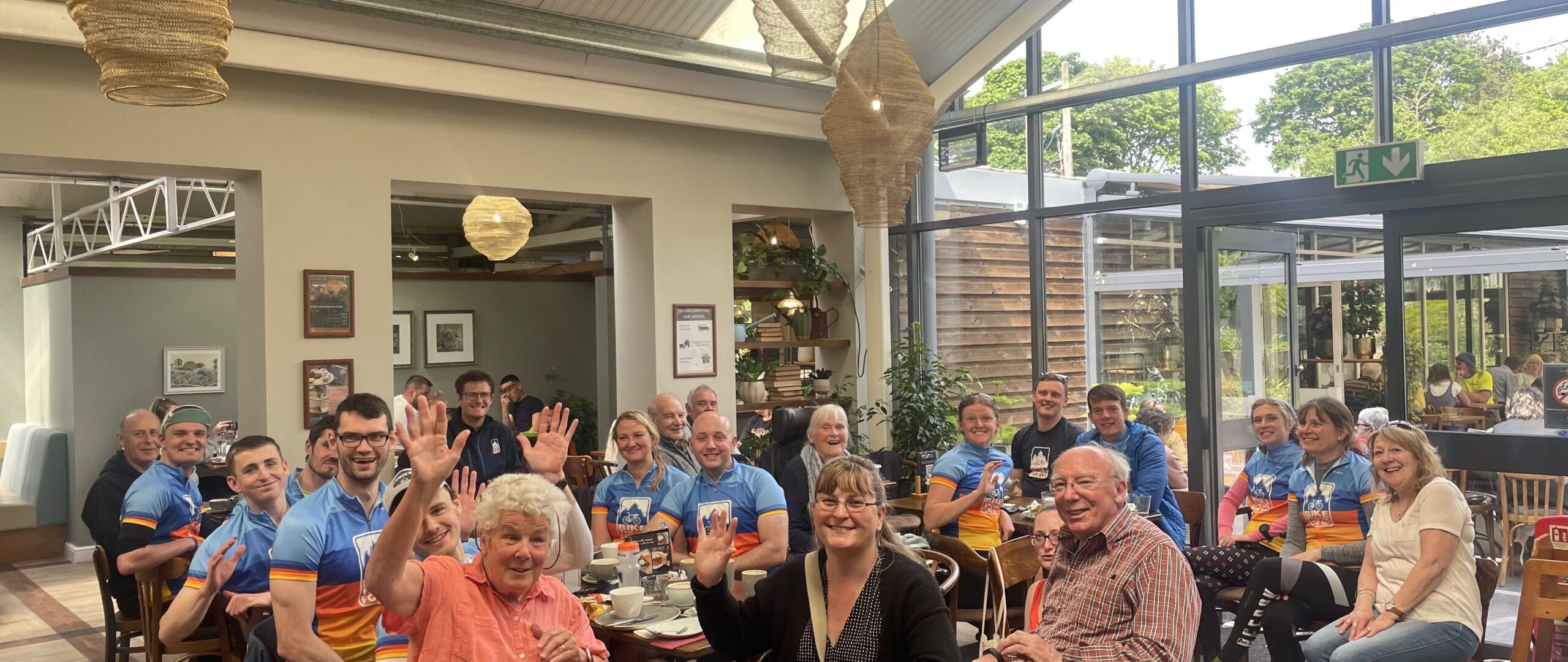
I’m just going to do as much as I possibly can whilst I can.
FY: If you were gonna summarise your mentality… You’ve kind of given us a bit of an insight there already but in terms of your mentality towards the disease and how it interacts with you in your life, have you got any core mantras or an can you give us a window into what your mentality towards it all is?
Rosie: I’m very much a massive believer in “face your fear and do it anyway”. When you’re living with a chronic illness, anybody living with a chronic illness, but MS in particular, sometimes it can feel a bit like a ticking time bomb, which is quite horrific when you think of it. It can be quite depressing. And I just think, for me personally, I’m just going to do as much as I possibly can whilst I can because none of us know how long we’ve got. But especially with MS, things can just turn on a sixpence overnight. So, yeah, I just think, yeah, crack on.
Rich: We have our own little phrases that we bounce back and forth between each other. Do your best. Just try your best. Have a go.
Rosie: Yeah, have a go. I mean, I just think, well, if I can do this, anybody can. And there’s so many different people that you meet on the Bike UK for MS trips as well. You don’t have to have an immediate association with MS to do it. But there’s a lot of people who don’t… I personally didn’t have, at the time I was doing JOGLE, a huge relationship with my local MS Society because I spent many, many years in denial that I was even managing to cope with a problem like this. Meeting all the groups along the way was really therapeutic for me in also coming to terms with my condition. I talk about it quite openly now, but it’s always been very uncomfortable for me to speak about. But yeah, it’s been a hard learning curve, hasn’t it?
Rich: Yeah.
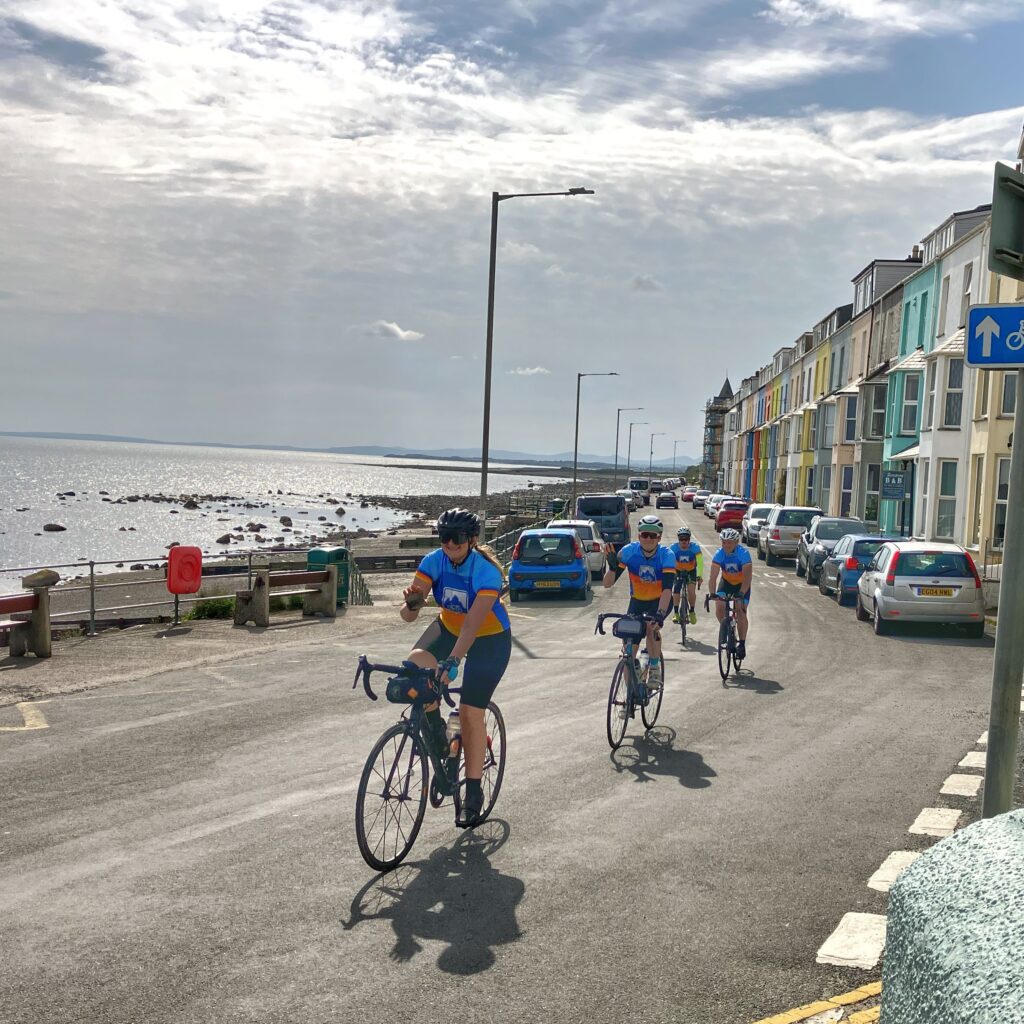
I don’t give it that time because if you let it, it can take over your life.
FY: We spoke earlier about your role Rich, filling the dress as a cheerleader and getting the pom-poms out. And that was in the context of cycling. As someone that’s part of a family with Rosie and multiple sclerosis, how does it affect what you do and how the rest of the family has to interact? Is it something that is only present sometimes or is it something that’s an ever-present that you have to change a lot around?
Rich: Yeah, it’s always there at the back of my mind. I never think about it. I also don’t give it enough oxygen to breathe. In my mind you’ve got two balloons; you’ve got a blue balloon that you can fill with the stuff that might affect you or you can have a red balloon that’s full of energy and life and everything going on around you. We always know it’s there but I don’t give it that air. I don’t give it that time because if you let it, it can take over your life.
Rosie: Yeah
Rich: …but there’s also the other bit of life that you’ve got to go on with anyway. We’ve got three kids, two dogs, we seem to have several cats even though we only bought one. Rosie keeps wanting to buy guinea pigs and goats. I said no to them! We’ve got caravan, we go on holidays, we’ve got a house that we’re doing up. We’ve got a lot of things going on in our lives. Rosie runs her own business. I work two jobs, one of one of them is my own business and I think I’m speaking on both of our behalfs but if we let it take over it could quite easily squash everything else. Rosie does all of these fabulous adventures and she’s got a long-term health condition or she could do the fabulous adventures and not have a long-term health condition. It’s just that she’s got that part of her. It doesn’t change who she is. It certainly doesn’t change my feelings and thoughts towards her but it is always there. The boys are quite young and they don’t fully understand it yet.
Rosie: When I ran the Great North Run, remember what I had on my back it said “I have MS but MS does not have me.” I’m not defined by it. Yes, as you know, it’s a pig of an illness but most of the time I just pretend I haven’t got it. I get really moaned at by my MS nurse. She tells me off all the time but you know we’re only here once and…
Rich: You don’t know what tomorrow is bringing.
Rosie: Yeah, we really don’t, we really…
Rich: Day by day for everything.
You can listen to the interview on our podcast or watch it on YouTube. To read Parts 1 & 2 you can follow the links here:
Part 1 – Adventures on the bike
Part 2 – Riding with Bike the UK for MS

